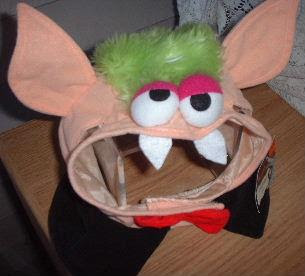The evolution of the crazy old bat

I have a question on evolution.
The idea is that organisms change over thousands and thousands of years, one tiny little random mutation at a time. Take the case of the bat. The commonly held theory is that it adapts to its environment. To be more accurate, random mutations occur, and the chaps who don't get the random mutation die out. As the bat retreats further and further into the cave, it mutates more and more.
Here's the thing.
1. What are the odds that a particular random mutation keeps moving along a specific trajectory to a useful purpose e.g. the development of the bat's echo directional sense? Let's say bats are 200,000 years old as a species. I'm fairly certain if I randomly chucked a lot of screws, gyroscopes and radar screens down a cave for 200,000 years, I wouldn't come up a sonar. If I were working in the cave with screws, gyroscopes and radar screens, with detailed instructions (a torchlight would help as well), I just might be able to, after 200,000 years. So, with deliberate intent, and with instructions to develop with a specific goal in mind, I still might not come up with a sonar. In fact, it is far more likely that I would have gotten lost and died out. What more if it were random?
So, the whole idea of non-mutated bats failing to adapt to the cave i.e. Darwin's survival of the fittest random mutants while the rest die out, has got it back to front. Survival of the fittest essentially says we're left with the random mutants because the rest died out. But really, it seems far more likely that the bat is deliberately adapting to the cave, because it is mutating in a specific direction, which allows it to go deeper and deeper into the cave. If there is adaptation, it is directed, not random adaptation. And if not, the bat started in the cave in the first place.
2. What possible environmental factors would guide the evolution of a useless trait e.g. blindness of the bat? I can understand positive mutations. But why negative mutations? You'd have thought having eyes would be a useful "survival of the fittest" edge, even as a backup.
3. The adaptation of an organism to its environment is seldom one-dimensional. For example - the bat has to have a special voice box to emit the squeak. It also has to have big ol' ears to hear. The brain has to develop so that it understands the echo of the squeak. So on and so forth. I don't pretend to understand the complexities of the bat :) But the point is this. The mutations have to work together. If the change is random, what are the odds that multiple complementary mutations occur at the same time? Infinitesimal.
The idea is that organisms change over thousands and thousands of years, one tiny little random mutation at a time. Take the case of the bat. The commonly held theory is that it adapts to its environment. To be more accurate, random mutations occur, and the chaps who don't get the random mutation die out. As the bat retreats further and further into the cave, it mutates more and more.
Here's the thing.
1. What are the odds that a particular random mutation keeps moving along a specific trajectory to a useful purpose e.g. the development of the bat's echo directional sense? Let's say bats are 200,000 years old as a species. I'm fairly certain if I randomly chucked a lot of screws, gyroscopes and radar screens down a cave for 200,000 years, I wouldn't come up a sonar. If I were working in the cave with screws, gyroscopes and radar screens, with detailed instructions (a torchlight would help as well), I just might be able to, after 200,000 years. So, with deliberate intent, and with instructions to develop with a specific goal in mind, I still might not come up with a sonar. In fact, it is far more likely that I would have gotten lost and died out. What more if it were random?
So, the whole idea of non-mutated bats failing to adapt to the cave i.e. Darwin's survival of the fittest random mutants while the rest die out, has got it back to front. Survival of the fittest essentially says we're left with the random mutants because the rest died out. But really, it seems far more likely that the bat is deliberately adapting to the cave, because it is mutating in a specific direction, which allows it to go deeper and deeper into the cave. If there is adaptation, it is directed, not random adaptation. And if not, the bat started in the cave in the first place.
2. What possible environmental factors would guide the evolution of a useless trait e.g. blindness of the bat? I can understand positive mutations. But why negative mutations? You'd have thought having eyes would be a useful "survival of the fittest" edge, even as a backup.
3. The adaptation of an organism to its environment is seldom one-dimensional. For example - the bat has to have a special voice box to emit the squeak. It also has to have big ol' ears to hear. The brain has to develop so that it understands the echo of the squeak. So on and so forth. I don't pretend to understand the complexities of the bat :) But the point is this. The mutations have to work together. If the change is random, what are the odds that multiple complementary mutations occur at the same time? Infinitesimal.
More importantly, you don't mutate special voice boxes and big ol' ears overnight. You take thousands of years. So we're talking about multiple complementary mutations occuring randomly and repeatedly and in the same direction over thousands of years, and worst of all, during the interregnum, the half-baked voicebox and ears are completely useless, because half a sonar is no sonar at all. How likely is that? Tell me that a half-blind, half-eared, half-voiced bat (hysterical mental picture :)) is the fittest survivor.
Even if the mutations were somehow to randomly occur sequentially, why would a big eared, but no voice box bat be fitter than a small eared bat? And more importantly, what environmental factors would cause a bat to develop big ears when it has no complementary squeaky voice box? So to me, survival of the fittest and evolution are an ill-matched pair. The rule of survival of the fittest prevents long-winded evolution from taking place. The only possible explanation for directional, multiple, complementary mutations occuring over a protracted period of time is (a) conscious direction or (b) it started that way.
Let's top off the craziness of it all with this. The mutation is random. And it obviously occurs in one individual at a time. Mutations don't happen en masse - they're not infectious. So basically, if that one individual bat with the desired mutation conks off before successfully getting it on with another bat (and assuming the mutation is passed on, which isn't guaranteed), that's it. The whole random process has to start again. The odds for evolution to get it right are simply staggering.
4. Finally, let's move away from the bat and look at the bigger picture. Let's suppose the bat managed, by repeatedly striking the lottery and doggedly surviving the evolutionary awkward adolescent years of having half a voice and half an ear and half a brain, to develop into the fine specimen that it is today. What are the odds that every other species, so amazingly fitted for its environment, won the lottery as well? Even the fellows who died out were, in their time (say, the dodo), perfectly fit for their environment you know.
Even if the mutations were somehow to randomly occur sequentially, why would a big eared, but no voice box bat be fitter than a small eared bat? And more importantly, what environmental factors would cause a bat to develop big ears when it has no complementary squeaky voice box? So to me, survival of the fittest and evolution are an ill-matched pair. The rule of survival of the fittest prevents long-winded evolution from taking place. The only possible explanation for directional, multiple, complementary mutations occuring over a protracted period of time is (a) conscious direction or (b) it started that way.
Let's top off the craziness of it all with this. The mutation is random. And it obviously occurs in one individual at a time. Mutations don't happen en masse - they're not infectious. So basically, if that one individual bat with the desired mutation conks off before successfully getting it on with another bat (and assuming the mutation is passed on, which isn't guaranteed), that's it. The whole random process has to start again. The odds for evolution to get it right are simply staggering.
4. Finally, let's move away from the bat and look at the bigger picture. Let's suppose the bat managed, by repeatedly striking the lottery and doggedly surviving the evolutionary awkward adolescent years of having half a voice and half an ear and half a brain, to develop into the fine specimen that it is today. What are the odds that every other species, so amazingly fitted for its environment, won the lottery as well? Even the fellows who died out were, in their time (say, the dodo), perfectly fit for their environment you know.



Comments